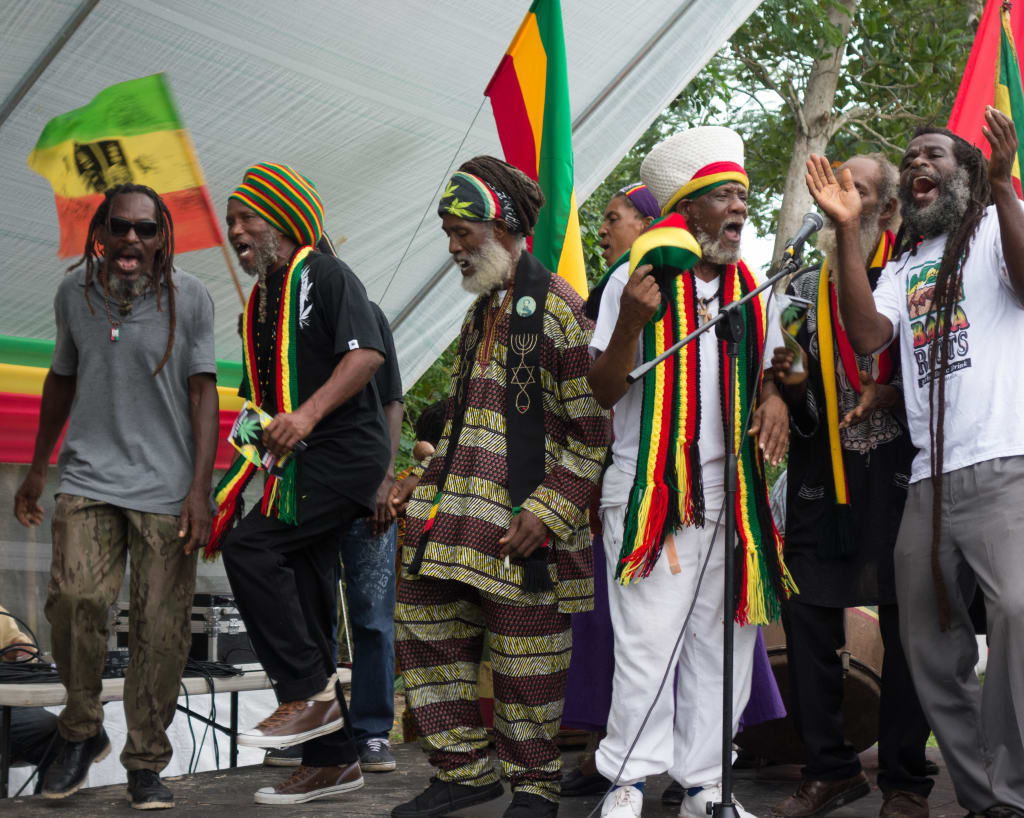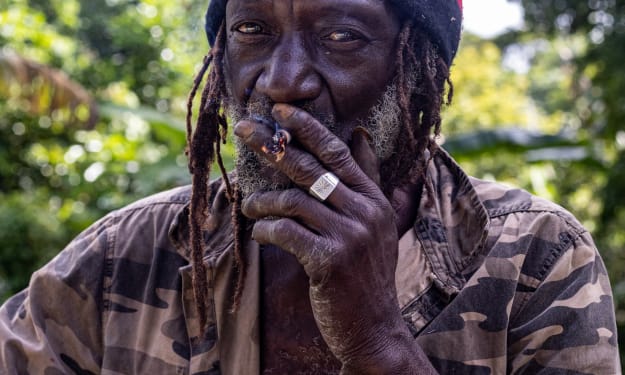
Rastafarian culture is a religious and cultural movement that originated in Jamaica in the 1930s. It is based on the belief in the divinity of the Ethiopian Emperor Haile Selassie I and the idea of the return of African diaspora to their ancestral homeland. Rastafarian culture is characterized by its distinctive dreadlocks, reggae music, and the use of marijuana for spiritual purposes.
Modern-day celebrations honoring Rastafarian culture are significant because they serve as a way to preserve and promote the culture and its values. They also provide an opportunity for Rastafarians and non-Rastafarians alike to come together to celebrate and learn about the culture's rich history and traditions.
The purpose of this blog post is to explore some of the modern-day celebrations honoring Rastafarian culture and their significance in promoting and preserving the culture. We will delve into some of the most popular celebrations and their historical and cultural significance. We will also highlight some of the activities and events that take place during these celebrations and how they contribute to the continued growth and development of Rastafarian culture.
Bob Marley Day Celebrations
Bob Marley was a Jamaican musician, singer, and songwriter who became one of the most iconic figures in the history of Rastafarian culture. He was a devout Rastafarian and used his music to spread the message of love, peace, and unity among people. Marley's music and lyrics reflected the values and beliefs of Rastafarianism, and his popularity helped to spread Rastafarian culture beyond Jamaica to other parts of the world.
Bob Marley Day is celebrated annually in Jamaica on February 6th, which is Marley's birthday. The day is observed as a national holiday in Jamaica, and it is marked by various activities and events that celebrate Marley's life, music, and contributions to Rastafarian culture. In addition to Jamaica, Bob Marley Day is also celebrated in other parts of the world, including the United States, Canada, and the United Kingdom.
Bob Marley Day celebrations typically include concerts, musical performances, and other cultural events. In Jamaica, the Bob Marley Museum in Kingston hosts a week-long celebration that includes musical performances, art exhibitions, and lectures on Marley's life and legacy. In other parts of the world, Bob Marley Day is marked by concerts, festivals, and other cultural events that celebrate Marley's music and contributions to Rastafarian culture.
Rastafari Rootzfest
Rastafari Rootzfest is an annual event held in Jamaica that celebrates Rastafarian culture and promotes the use of cannabis for medicinal and spiritual purposes. The event was first held in 2015 and has since become one of the largest cannabis and Rastafarian culture festivals in the Caribbean.
The purpose of Rastafari Rootzfest is to promote the use of cannabis for medicinal and spiritual purposes, as well as to celebrate Rastafarian culture and its contributions to Jamaica and the world. The festival also aims to provide a platform for cannabis advocates, entrepreneurs, and enthusiasts to come together and discuss the latest developments in the industry.
Rastafari Rootzfest features a wide range of activities and events that celebrate Rastafarian culture and promote the use of cannabis. These include musical performances, art exhibitions, panel discussions, and workshops on various topics related to cannabis and Rastafarianism.
One of the main events during Rastafari Rootzfest is the High Times Jamaica World Cannabis Cup, which is a competition that judges the best strains of cannabis grown in Jamaica. There are also workshops on how to grow cannabis, as well as discussions on the legal and regulatory landscape for cannabis in Jamaica and around the world.
Other events during Rastafari Rootzfest include a Rasta Village, which features traditional Rastafarian foods, crafts, and clothing, as well as a drumming competition and a children's village.
Coronation Day Celebrations
Haile Selassie's coronation in 1930 is a significant event in Rastafarian culture, as it is believed by Rastafarians to mark the fulfillment of a prophecy in which a black king would be crowned in Africa and would lead the redemption of black people everywhere. Haile Selassie, who was the emperor of Ethiopia at the time, was seen by Rastafarians as the living embodiment of this prophecy and was elevated to the status of a messianic figure.
Coronation Day is celebrated annually on November 2nd in Jamaica and in Rastafarian communities around the world. The day is marked by various cultural and spiritual activities, such as drumming, chanting, and feasting. The celebrations often involve the wearing of traditional Rastafarian clothing, including the red, gold, and green colors that symbolize the Rastafarian movement.
In Jamaica, the Coronation Day celebrations often begin with a procession from the National Arena in Kingston to the Holy Trinity Cathedral, where a thanksgiving service is held. The service includes prayers, hymns, and speeches, and is followed by a cultural showcase featuring performances by local musicians and dancers.
Other activities during Coronation Day celebrations include a ceremonial lighting of the "Queen's Jubilee" candle, which is a symbol of the Rastafarian movement's reverence for Haile Selassie and the Ethiopian monarchy. There may also be feasting on traditional foods such as ital stew, which is a vegetarian dish made with vegetables and spices.
Nyabinghi Celebrations
Nyabinghi celebrations are religious ceremonies that are held by Rastafarians in honor of Jah (God) and the Rastafarian faith. These celebrations typically take place on a full moon or during the new moon and can last for several days. The word "Nyabinghi" is derived from the name of a 19th-century East African woman who led an anti-colonial rebellion against the British. Rastafarians adopted the name to represent their struggle against oppression and injustice.
Nyabinghi is one of the oldest and most traditional Rastafarian orders. It is based on the principles of peace, love, and unity and promotes the use of natural herbs and fruits for healing. The Nyabinghi order is also known for its use of drums, which are used to communicate with Jah and to express emotions during ceremonies.
Nyabinghi celebrations are significant because they provide a space for Rastafarians to connect with their faith, culture, and community. These celebrations also serve as a way to honor the ancestors who fought against oppression and to acknowledge the ongoing struggle for justice and equality.
It typically involve religious ceremonies, drumming, chanting, and dancing. During these ceremonies, Rastafarians gather in a circle around a fire and perform various rituals and chants. They also use drums and other percussion instruments to create music and rhythm. Some Nyabinghi celebrations also include feasting, storytelling, and other cultural activities.
Lastly, Nyabinghi celebrations are not only limited to Jamaica but also occur in other parts of the world, including Africa, Europe, and the Americas. These celebrations provide an opportunity for Rastafarians to come together, celebrate their culture, and build connections with others who share their faith.
Conclusion
Modern-day celebrations honoring Rastafarian culture serve as a means to preserve and celebrate the rich history and traditions of this unique culture. From Bob Marley Day celebrations to Rastafari Rootzfest, Coronation Day, and Nyabinghi celebrations, these events provide a platform for Rastafarians and non-Rastafarians alike to come together and learn about Rastafarianism. Through music, dance, food, and other cultural activities, these celebrations showcase the diversity and richness of Rastafarian culture. It is important to continue to support and participate in these celebrations to ensure that Rastafarian culture continues to thrive for generations to come. For those interested in learning more about Rastafarian culture and its celebrations, there are numerous resources available, including books, documentaries, and online forums.
Final Note
If you’re interested in exploring who is Jah and Rastafarian culture further, we invite you to check out Fifth Degree’s collection of Rastafarian clothing. Our clothing is designed to reflect the spirit and teachings of Rastafarianism, with bold colors, empowering messages, and a commitment to sustainability and ethical production. We believe that what you wear can be a powerful expression of your values and beliefs, and we’re proud to offer a range of high-quality, stylish, and socially conscious clothing for individuals who are seeking to live in harmony with nature and the divine. Visit our website today to learn more about our collection and find the perfect Rastafarian clothes for woman for you.






Comments
There are no comments for this story
Be the first to respond and start the conversation.